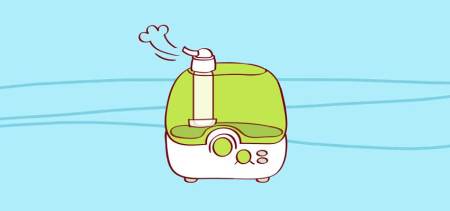 Frigid winter weather may mean spending more time indoors, so keep in mind that it’s important to breathe clean air when you can’t get outside.
Frigid winter weather may mean spending more time indoors, so keep in mind that it’s important to breathe clean air when you can’t get outside.
A home with good indoor air quality can limit allergy and asthma symptoms, mold growth and create a more comfortable atmosphere in which to live and breathe,” said Marshfield Clinic Allergist Dr. Mark Huftel.
The biggest issue in winter is dry air in our homes. For allergy sufferers, indoor allergens such as dust mites and animal dander are big problems. Wood-burning stoves and furnaces can also emit irritants that affect allergies.
Mold issues would be limited to homes with dampness problems typically occurring in warmer months.
Air filters
Air filtration systems pull mold, pollen and other particulates out of household air. Regular furnace filters are only 10 percent efficient in removing lint and other particulates.
The best systems use HEPA (high-efficiency particulate absorption) filters that have multiple pleats to trap tiny particles. HEPA systems can be up to 99.9 percent efficient in removing floating particles from the air.
Electronic air cleaners come in two types:
- Electronic cleaner – good at sweeping mold and pollen particles by catching them on an electrically charged plate.
- Ionizer – produces electrically charged ions that bond to air particles and causes them to cling to walls, ceilings and drapes.
Points of caution:
- Higher efficiency furnace filters may trap more particles but can’t be used on all furnaces. Older furnace fan motors weren’t designed for increased airflow resistance, so speak with a heating and cooling professional.
- Room unit air cleaners have not been proven to reduce symptoms and improve health.
- Ionizers produce ozone, which is an irritant, and should not be used especially by people with respiratory disease.
Families with allergy problems should first look for and eliminate the problem’s source. Pets, rugs, dust mites and moldy areas are the first suspects. Source control is the best option and duct cleaning hasn’t been proven to improve symptoms or general health.
Humidifiers
Humidifiers are great during winter in cold climates where home heating systems are used constantly. Humidifiers may help if you suffer from sore throats, headaches, nose bleeds and coughs related to dry air.
Humidifiers come in two types:
- Evaporator – forces air over water inside the unit and blows evaporated water into the house.
- Atomizer – Breaks up water droplets and produces a mist that evaporates as it’s distributed throughout the house.
Humidifiers can be built into a central heating system and use furnace ducts to distribute moist air throughout the home. Portable humidifiers come in tabletop units for single rooms and larger console models for multiple rooms.
Humidifiers must be cleaned according to manufacturer’s recommendations. How much humidity the house tolerates is affected by air turnover, window quality and outside temperature. Too much moisture creates condensation on windows which can result in mold growth and wood window frame rot.
Most important, keep it clean, so don’t forget to regularly clean and/or change humidifiers and air filters.

